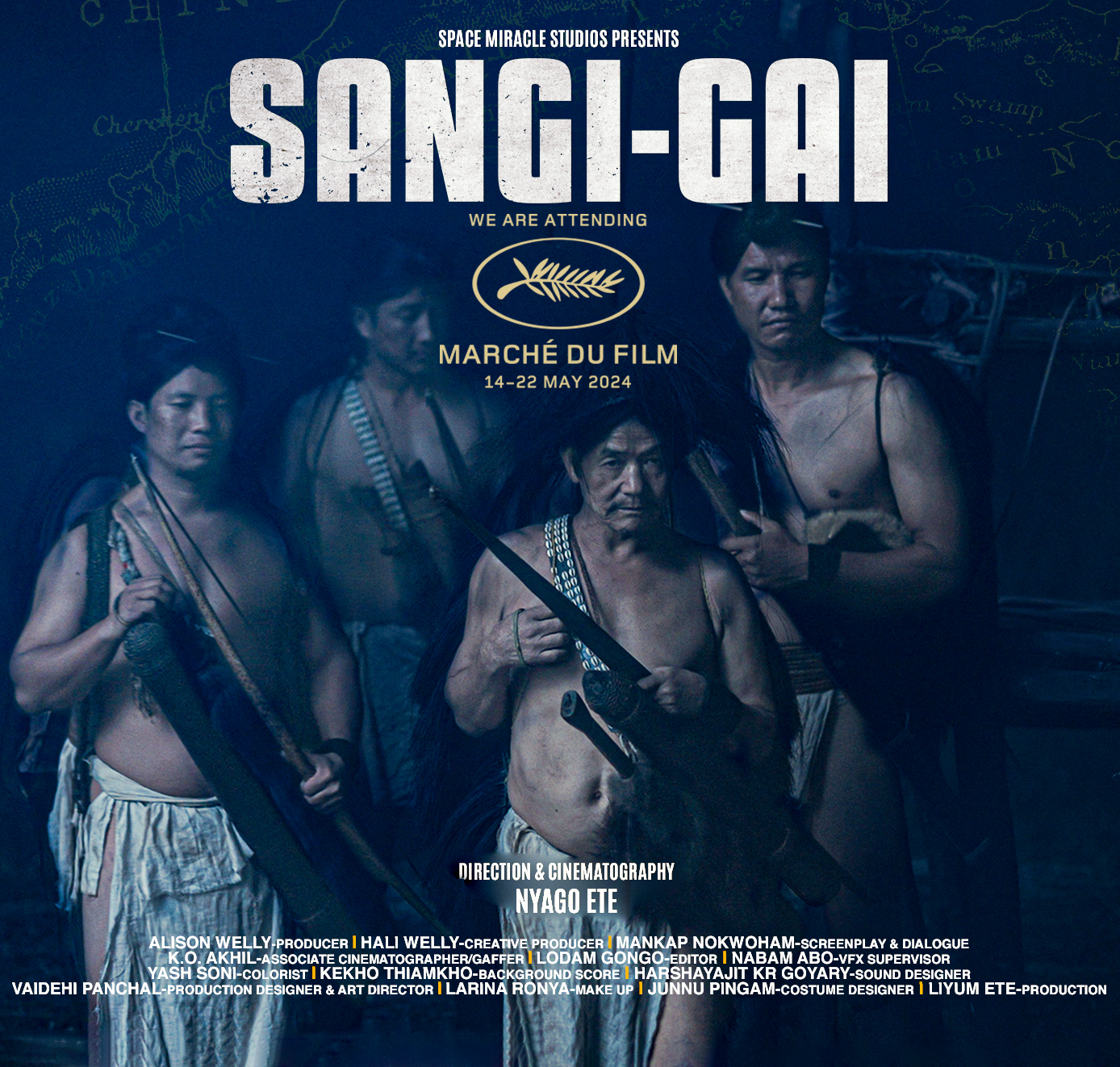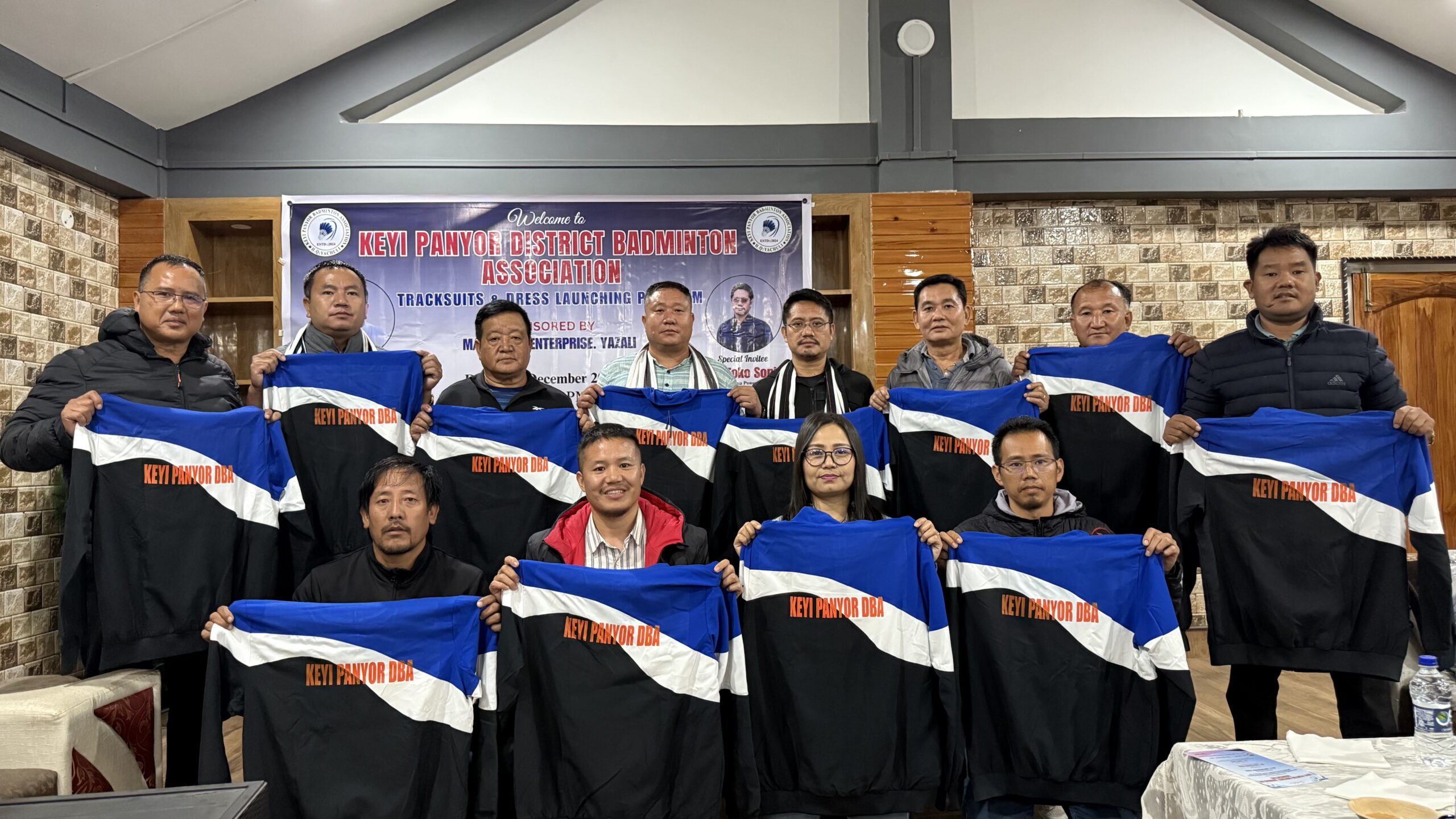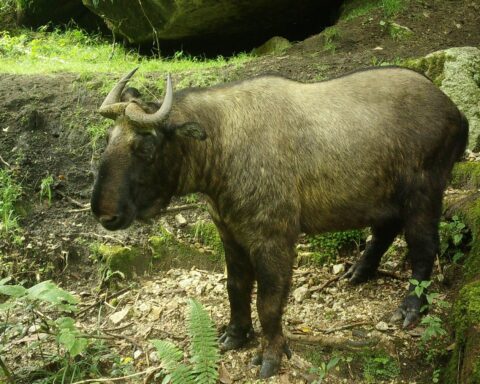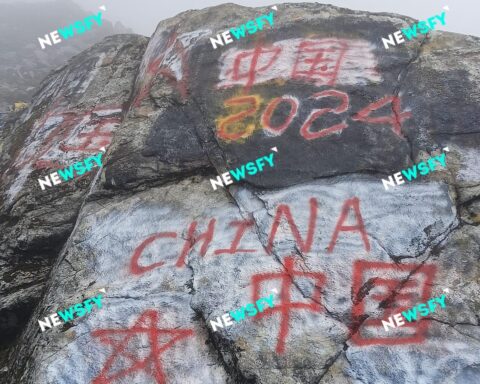Itanagar: “Itanagar 0km” and “Aaba” producer Alison Welly’s latest film, “Sangi Gai,” directed by Nyago Ete and creatively produced by Hali Welly, has achieved a significant milestone by being selected for screening a Festival De Cannes.
Following its successful screening in Arunachal Pradesh, the film is set to be showcased at the 76th edition of Cannes Film Festival on Sunday.
“Being recognized by the people, the state government, and having our work screened at Cannes is a major achievement for us,” said Producer Alison Welly.
The Cannes Film Festival, known for spotlighting films from underrepresented regions, provides a global stage for voices often unheard. “Sangi Gai” leverages this platform to introduce the world to the beauty and complexity of Arunachal Pradesh.

“Many people do not know where Arunachal Pradesh is and bringing it to a global audience and receiving such huge recognition is a tremendous success,” Alison remarked.
The rise of regional films in Indian cinema, highlighting lesser-known cultures and communities, has been a welcome development.
“After making ‘Itanagar 0km’ and ‘Aaba,’ we were waiting for a really good story, and then ‘Sangi Gai’ came,” Alison noted. “I believe that Nyago has done exceedingly well in bringing this story to life.”
“Sangi Gai” masterfully blends the past and present, showcasing Arunachal Pradesh’s historical and contemporary elements. This dual narrative approach enriches the film, presenting a nuanced view of the region’s culture.
“We get to show the audience how people here lived in the olden times,” Alison explained.
A standout feature of “Sangi Gai” is the involvement of local talent, highlighting the creativity and talent present in regional film industries. Most of the crew were from Arunachal Pradesh itself, and that is what we wanted too. Receiving recognition for our work feels like a collective effort of a family. This involvement was crucial to ensure the film remained true to its roots and authentically captured the culture’s nuances,” Alison said.
The film’s dialogue, primarily in Nyishi with some Hindi and English, adds to its authenticity. “Rather than a mirch-masala sort of film, this is a very content-driven project,” Alison emphasized.
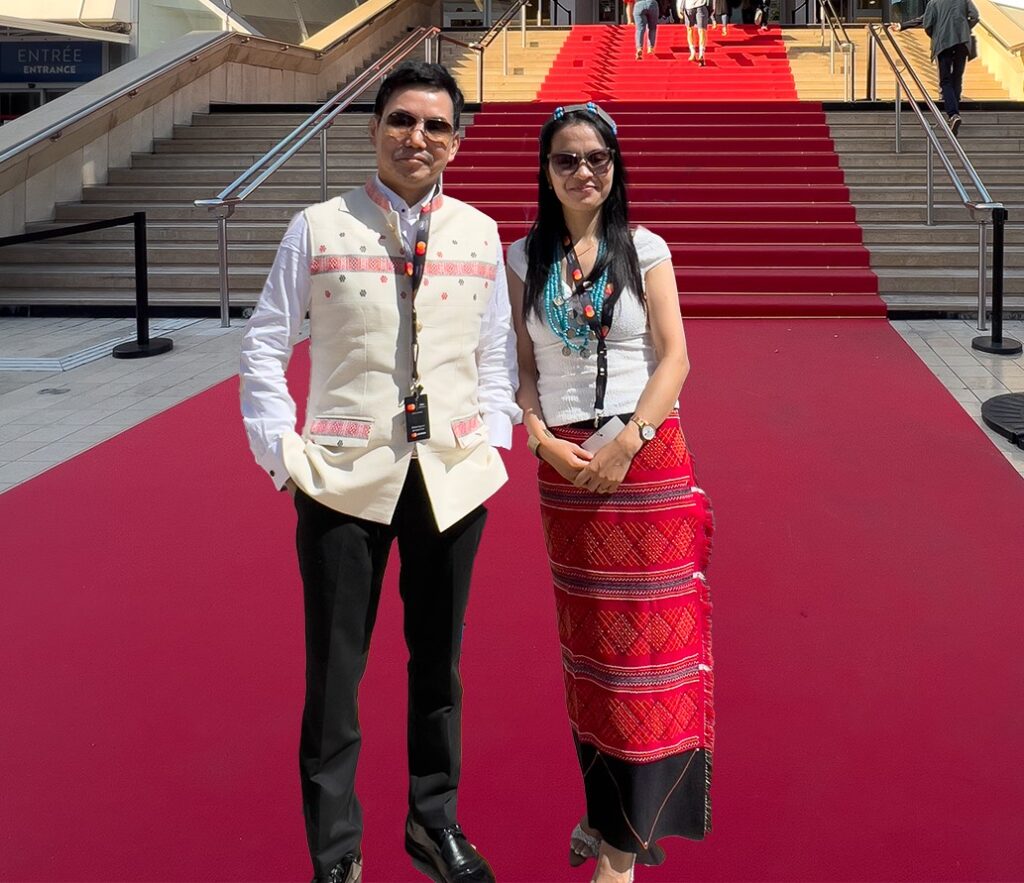
The filmmakers are confident that the story’s uniqueness and cultural richness will resonate with viewers.
“It is our story, a distinct portrayal of Arunachal Pradesh’s life, unlike any other in the world,” the producer said.
The production of “Sangi Gai” spanned almost three years, marked by dedication and respect for the story. “When I saw the first draft, I knew that this film would absolutely work. So, we wanted to showcase it in bigger film festivals and to a larger audience,” Alison recalled.
While acknowledging that their work might not be as commercially profitable as mainstream Bollywood productions, Alison emphasized its cultural value. “Though we are not doing very profitable work compared to the Bollywood industry, our works are worth watching, I believe,” she stated.
“Sangi Gai” serves as a catalyst for cultural exchange, inviting global audiences to engage with the unique heritage and identity of Arunachal Pradesh.
Through its portrayal of the region’s landscapes, traditions, and people, the film opens avenues for cross-cultural understanding and appreciation.
It becomes a medium for viewers to transcend their own cultural perspectives and immerse themselves in another’s lived experience, celebrating the region’s heritage and the power of regional cinema.
Also read: Arunachal’s Jessica Saring nominated for PM Rashtriya Bal Puraskar 2024

